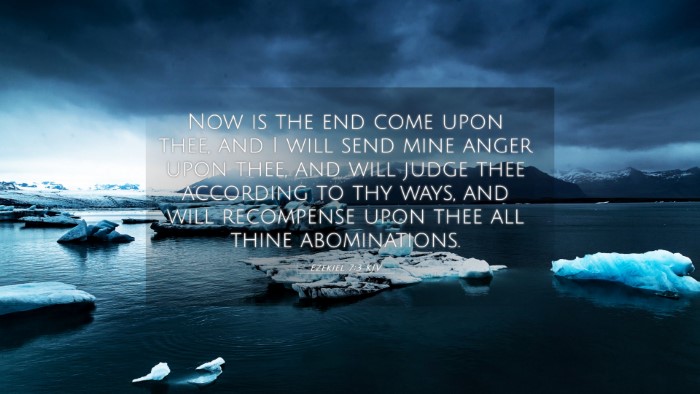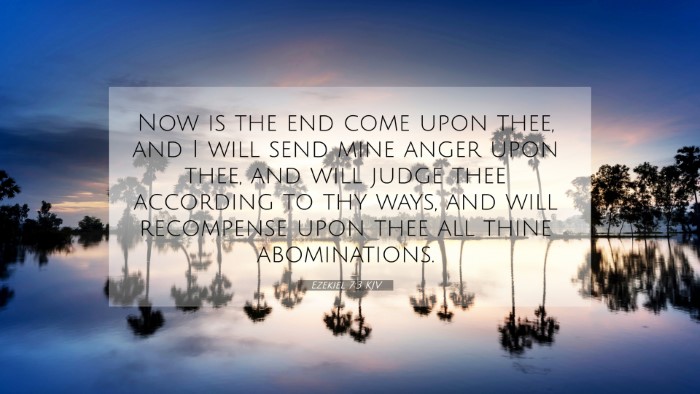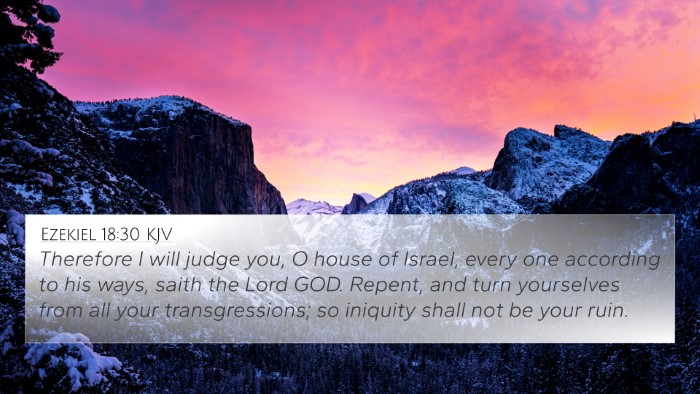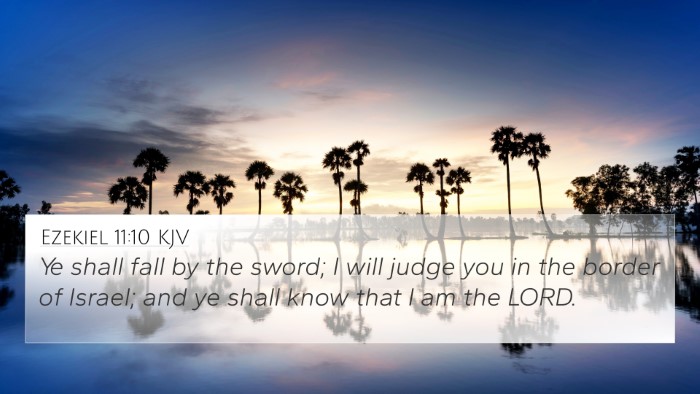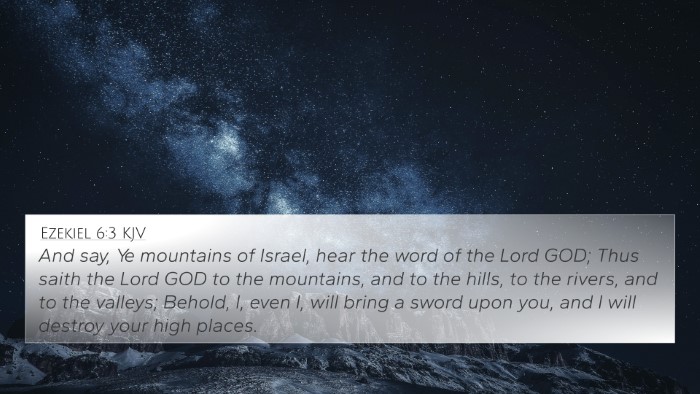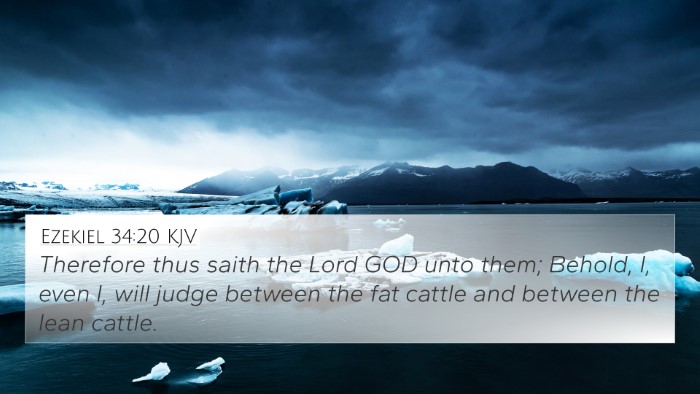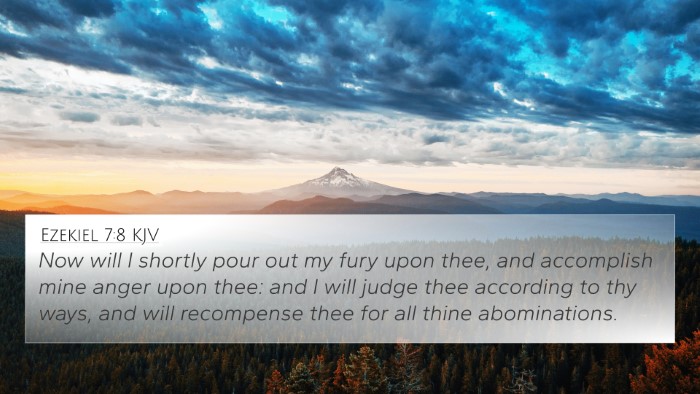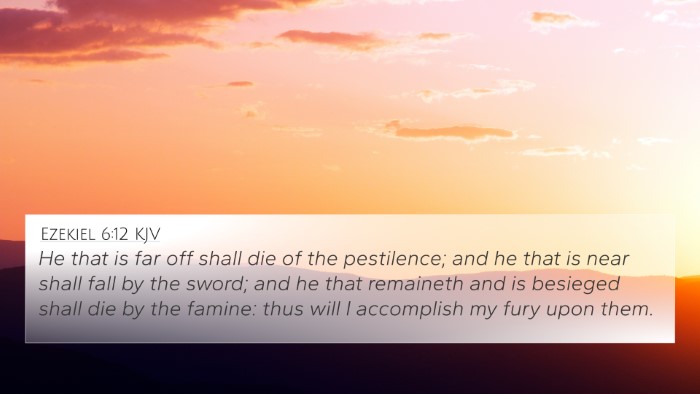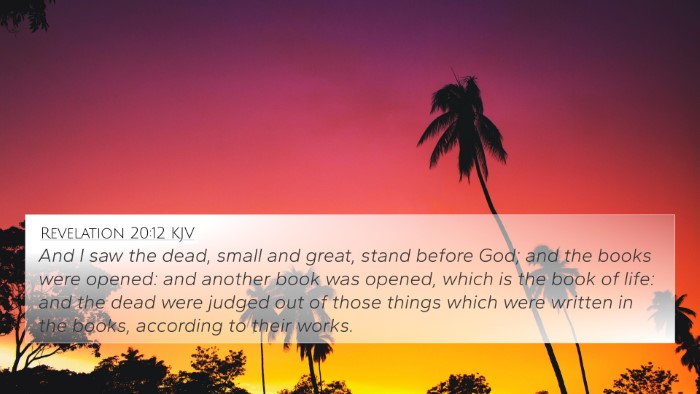Ezekiel 7:3 - Interpretation and Insights
Ezekiel 7:3 states: "Now is the end come upon thee, and I will send mine anger upon thee, and will judge thee according to thy ways, and will recompense upon thee all thine abominations." This verse serves as a pivotal warning to the people of Israel about impending judgment.
Summary of Ezekiel 7:3
The prophet Ezekiel is addressing a nation on the brink of divine judgment, emphasizing that the time of reckoning has arrived. This verse indicates that God’s anger is not arbitrary; rather, it is a response to the people’s actions and sins. The theme resonates throughout biblical teachings about divine justice and the consequences of wrongdoing.
Commentary Insights
Matthew Henry's Commentary
Matthew Henry highlights the importance of accountability for actions. He elaborates that God's judgment is just and inevitable. The phrase "will recompense upon thee all thine abominations" underscores that divine retribution is based on the behavior and spiritual integrity of the nation.
Albert Barnes' Notes on the Bible
Albert Barnes emphasizes the seriousness of the warning given. He explains that the phrase "the end" signifies the culmination of a series of events leading to judgment. Barnes notes the importance of understanding that God's anger is directed at the amassed sins of the people, depicting a God who is not indifferent to human actions.
Adam Clarke's Commentary
Adam Clarke discusses the prophetic aspects of this verse, indicating that it isn’t just a message for Ezekiel's contemporaries but serves as a timeless reflection on divine judgment. Clarke points out that the certainty of judgment calls for repentance and a return to righteousness; otherwise, the people face dire consequences.
Bible Cross-References
This verse connects thematically and contextually with several other scriptures that address divine judgment, accountability, and divine retribution:
- Jeremiah 25:31 - The Lord summons nations for judgment.
- Ezekiel 18:30 - Calls for repentance and turning from sins.
- Isaiah 10:3 - The day of reckoning for the oppressed.
- Hebrews 10:30 - Vengeance belongs to the Lord.
- Revelation 20:12 - The judgment day for all individuals.
- Galatians 6:7 - Reaping what one sows.
- Matthew 25:46 - The final judgement and separation of the righteous and the wicked.
Links Between Biblical Texts
Understanding Ezekiel 7:3 involves recognizing its connections with other passages that discuss God’s attributes of justice and holiness:
- Linking Ezekiel's message to the prophetic literature reflects the thematic continuity regarding sin and judgment.
- The cross-references to Jeremiah amplify the urgent call for repentance.
- Comparing this verse with Revelation shows the fulfillment of prophecies regarding final judgment.
Thematic Connections
Ezekiel's declaration forms part of a larger biblical narrative centered on sin, judgment, and grace:
- The thematic thread of justice runs through the law and the prophets, highlighting the consequences of disobedience.
- Insights from Paul’s epistles provide depth, emphasizing that God’s law remains evident and imposes responsibility on individuals.
Inter-Biblical Dialogue
The exploration of Ezekiel 7:3 allows readers to engage in an inter-biblical dialogue, particularly concerning the principles of divine justice:
- This verse invites reflection on how the Old Testament prophetic messages echo through the New Testament.
- Exploring the nature of God's anger and justice leads to insights regarding Jesus' teachings on repentance and forgiveness.
Conclusion
In Ezekiel 7:3, we see a profound message about accountability, judgment, and the need for repentance. This verse not only serves as a warning to the people of Israel but also offers timeless truths relevant to us today. Reflecting on this passage through Bible cross-referencing enhances our understanding of Scripture's interconnectedness and the unchanging nature of God’s justice.

